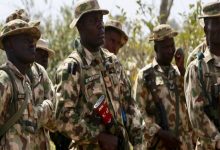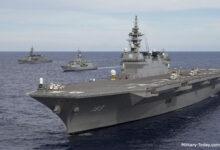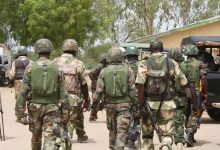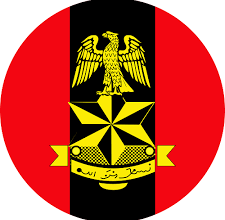10 Problems of the Nigerian Military Rule
Military rule in Nigeria first started on January 15, 1966, when a group or army officers overthrew the NPC-NNDP government thereby overthrowing Sir Ahmadu Bello; the post-independence leader of the country and killing many of the country’s political leaders.
15th of January 1966 marked the beginning of military rule in the country and the military era has been filled with series of coups and counter coups. Military rule in Nigeria has caused a chain of drastic effects on Nigeria and Nigerians, some of the problems of military rule in Nigeria includes but is not limited to:
👉 Relocate to Canada Today!
Live, Study and Work in Canada. No Payment is Required! Hurry Now click here to Apply >> Immigrate to CanadaRead Also: 10 Problems of Nigeria Military and Possible Solutions
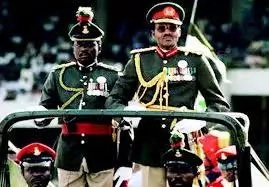
1. Loss of Lives and Properties
The military power desires to rule with absolute control and as such eliminates any form of threats. During the January 15, 1966 coup, the first ever coup, it was quite bloody with 11 senior Nigerian politicians and 2 soldiers being murdered also, 3 soldiers were kidnapped in the course of the coup.
The coup plotters attacked Ibadan, Lagos and Kaduna within a period of 2 days. These were the first of many deaths to occur as each coup was replaced by a more bloody counter coup; military leaders in Nigeria neuter ruled nor lived long as they were either captured, kidnapped or outrightly killed.
2. Relegation of the Constitution to the Background
The Constitution is a set of rules meant to guide the affairs of the government and the people, it is a form check on the power and stomping on the rights of other people.
Read Also: 7 Roles of Traditional Rulers in Achieving Stable Democracy in Nigeria
However, it is the first to go in a military era. Due to the desire for absolute power, one of the first things the military does is to nullify the power of the constitution. This gives total freedom to rule as they wish without having to follow the set of rules contained in the constitution.
After the first coup, Major Chukwuma Ojukwu Nzeogwu officially announced the successful coup on Radio Nigeria in Kaduna. He is quoted as further saying ‘the Constitution is suspended and the regional government and elected assemblies are hereby dissolved…”
3. Lack of Freedom
In the military era, speeches against the ruling power is not tolerated and could lead to the imprisonment and assassination of such people.
👉 Relocate to Canada Today!
Live, Study and Work in Canada. No Payment is Required! Hurry Now click here to Apply >> Immigrate to CanadaThere was a coup attempt during the Abacha led administration in 1995 and this led to the arrest and imprisonment of the likes of General Obasanjo, Major General Shehu Shagari, Musa Yaradua and some other prominent soldiers.
Also, some of the civilians that spoke against these imprisonments were also imprisoned; prominent among them was Beko Ransome-Kuti. The military took control of the media for propaganda purposes, The military decide to a larger extent what you should hear in the media.
Private media houses have restrictions on what they air out to the public. People also don’t have the freedom of speech.
4. Instability Of Government
The government during the military regime was unstable. Throughout the 33 years of military rule in Nigeria, Coup d’état was the order of the day, governments were overthrown, political leaders assassinated and oppositions silenced.
During this regime and you can just wake up to hear that a new Head of State had emerged. This led to instability in the government and the lack of continuity in government.
Read Also: How to Join The Nigerian Army
5. Corruption
The military regime was a very corrupt one. Unlike the civilian regime where it is widely spread and many had their own share of the national cake, in the military era, national resources were siphoned by a few while majority lived in fear and terror unable to speak for fear of imprisonment torture or death.
Only few had access to the national cake and carry out their corrupt act. After more than three decades, Nigeria is yet to recover all the loot Abacha, a military dictator stole.
6. Incompetence or Inexperienced Personnel
The military regime constituted military personnel who lacked administrative and political experience to govern. Military personnel are trained and used to the application of force to get desired results, other peaceful means like negotiations, exchange or even concession seem alien thus, even if they come into power with seemingly good motives, they are politically incapable to rule the nation, Nigeria.
Read Also: 9 Ways to Improve Nigerian Democracy
7. Independence of the Judiciary
The judiciary in Civilian or Democratic rule serves the purpose of check and balancing on the excesses of the government, however, during the military reign their independence was sometimes not guaranteed which rendered the judiciary powerless.
8. The Nigerian Civil War
The military rule was responsible for the civil war that claimed millions of lives. many of the high ranking officials in the military felt that the first coup had been carried out to favour the Igbo people.
Particularly, due to the fact that many of the leaders and military officers murdered during that coup were northerners. Coincidentally, many Igbo Majors were promoted soon after the coup which furthered confirmed these speculations. These led to a counter coup and a chain of effects leading to the Nigeria-Biafra war.
9. Lack Of Legitimacy
The military was a totalitarian and oppressive government whose authority derives from military power and intimidation rather than democratic choice of the people.
Those who are in power tend to enjoy advantages such as unquestioned authority, nearly unlimited power, and access to a wider range of resources than are typically offered to citizens within the same nation. Additionally, military dictatorships tend to be ruled by a single individual who has no real accountability.
Military dictators tend to lead their countries for a long time, very rarely stepping down voluntarily, meaning that violent struggle is necessary to implement a different style of government. As such the military lacks the legitimacy citizens’ consent gives.
Read Also: 10 Problems of Security in Nigeria and Possible Solutions
10. Stagnation
Despite over seventeen years of unbroken civilian rule, Nigeria is still staggering from the effects of thirty three years of military oppression, the rigging of elections continues till date, the siphoning of national wealth which could have been used to erect structure of national benefits, the relegation of systems of checks and balancing to a helpless state, the declaration of decrees have negatively affected the economy and stagnated development.
